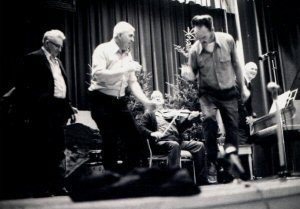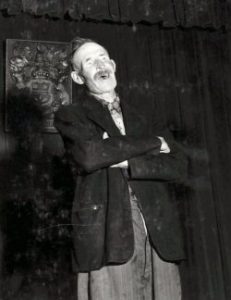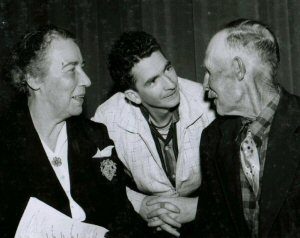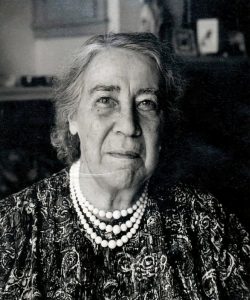Louise Manny
Louise Manny 1890 – 1970
|
|
Louise Manny was born 1890, in Gilead, Maine. She moved to Newcastle, New Brunswick, with her family when she was 13 years old. She was educated in Newcastle, and at the Halifax Ladies College (as was Helen Creighton), and the Ursuline Convent in Quebec City. She graduated from McGill University in Montreal in 1913 with a Bachelor of Arts degree with honors in French and English. After graduation she taught briefly at the Halifax Ladies College before returning to Newcastle.In 1947, Manny began collecting folksongs at the request of Max Aitken, Lord Beaverbrook, a wealthy British politician and newspaperman who was born in New Brunswick. As she recalled:
In 1947 Lord Beaverbrook opened up a new world for me by saying, “Why don’t you go out and collect New Brunswick folksongs? I’ll send you a fine recording machine.”. . . . I said to Lord Beaverbrook, “Folksongs? I don’t believe there are any-not nowadays at least. . . .”
“Nonsense” said His Lordship, “of course they have folksongs. Why, when I was a boy they had a song about the Jones Boys.” And here he sang:
“The Jones Boys! They built a mill On the side of a hill, And they worked all night, And they worked all day, But they couldn’t make that gosh-darned sawmill pay.”
“. . . . Just you start collecting, and you’ll have a lot of fun.”
What a masterpiece of understatement that was! “Little did I think what lay before me!” as the old songs are fond of saying. Little did I think that in the following years. . . . I would meet Wilmot MacDonald who knows a hundred songs . . . . That the completely bilingual Allan Kelly would sing French and English songs, among the latter the ancient False Knight upon the Road . . . . That William Dickson would come in from Craigville to sing The Old Beggar Man,. . . . That we would be on the radio, and that people in country districts would walk miles on Sunday afternoons to hear “our own songs” and that lumber camps would stop work to hear our Wednesday afternoon programs.
Louise Manny and James Wilson, Songs of the Miramichi, (Fredericton, New Brunswick: Brunswick Press, 1968)
She found singers through notices in the local press and radio and on the screen at the Newcastle movie theatre. She asked those who knew traditional songs to come to the Legion Hall, where she had set up her recording equipment. Evidently this actually worked, and her singers came to her, although the usual folklorist’s method was to seek them out in their homes. The Beaverbrook Collection, as she called these recordings, is currently housed at the New Brunswick Provincial Archives.
Louise Manny founded the Miramichi Folksong Festival, today one of the longest-running festivals of its kind. Folklorist Edward D. “Sandy” Ives describes the singers during the early years of the festival as “elderly woodsmen, river-drivers, stevedores, farmers, housewives and the like performing for an audience composed almost entirely of their friends and neighbors”. Manny controlled the festival until her death in 1970, deciding who could perform, and what they could sing. She insisted upon local performers. Once she told Pete Seeger that, while he could come to the festival, he could not sing. At her death in 1970, her last thoughts were of the festival. This is reflected in the monument to her work, erected in Newcastle in 1987. The inscription includes her last words, “Keep the festival alive.”
Not all Miramichi Folksong Festival performers stood quietly at the microphone and sang. These men are step-dancing to the music of the fiddler in the background at the 1972 Festival.

John Holland certainly looks like he’s enjoying himself as he sings at the First Miramichi Folksong Festival in 1958.

Louise Manny chats with performers Art Matchett and John Holland at the First Miramichi Folksong Festival, Newcastle, New Brunswick, 1958. From left to right, Manny, Art Matchett, and John Holland.


